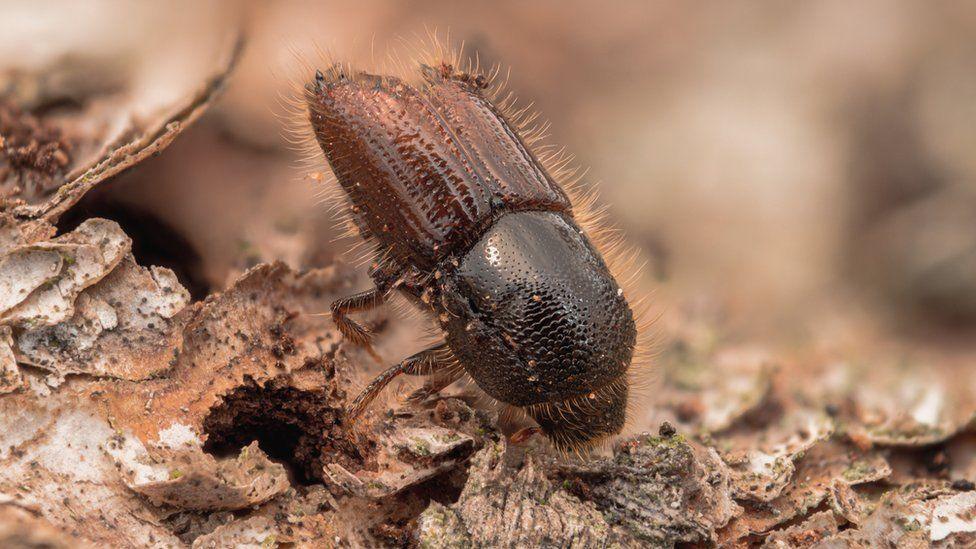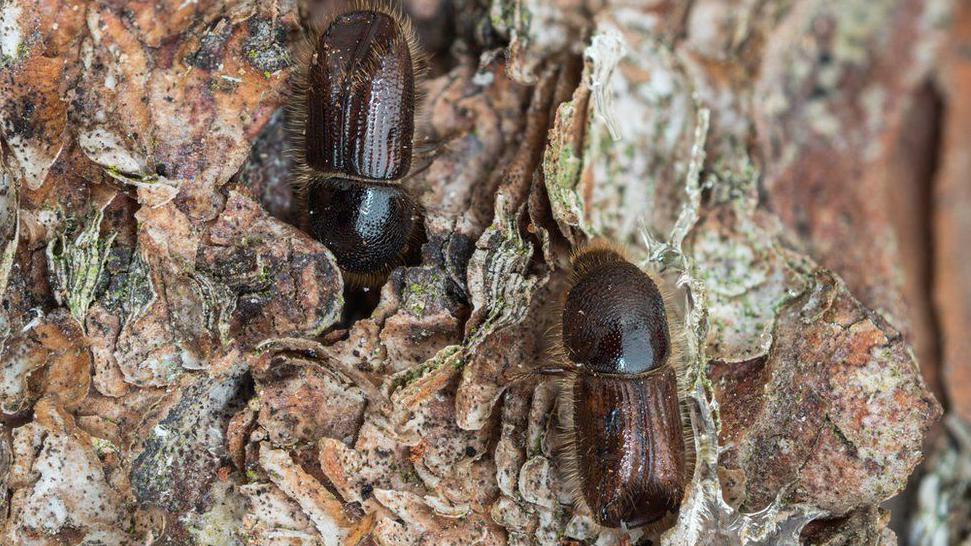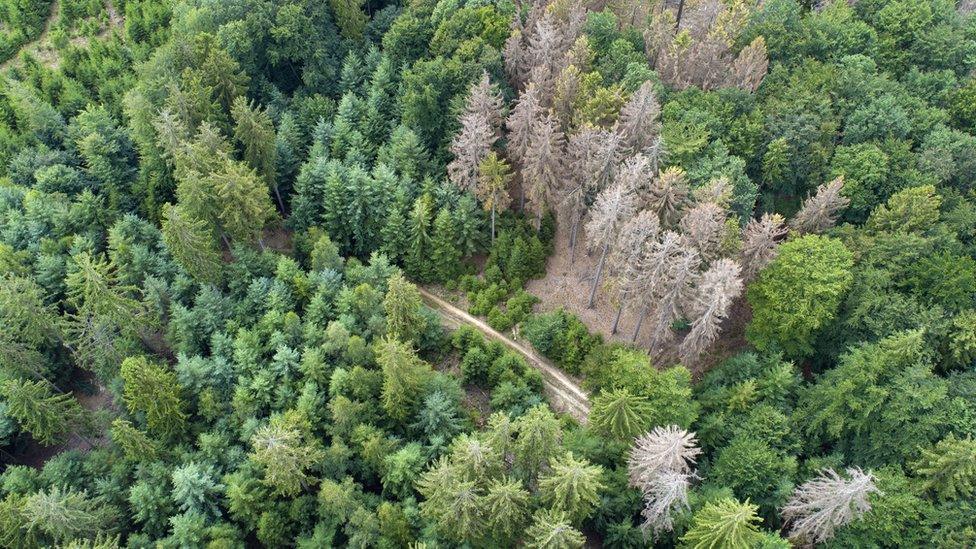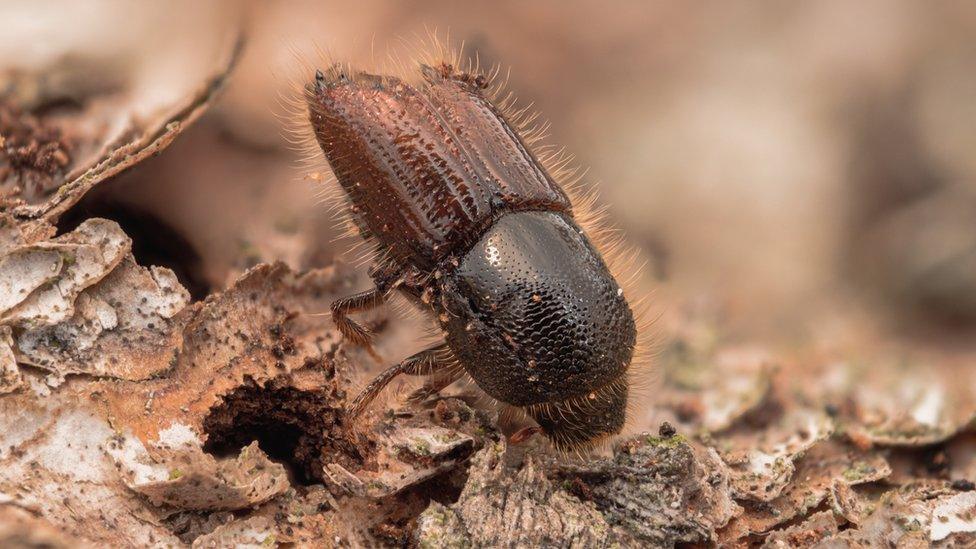Spruce tree planting ban over beetle pest fears

The Ips typographus, or larger eight-toothed European spruce bark beetle, is an invasive species
- Published
Planting of new spruce trees is being banned in parts of East Anglia and South East England as part of new measures to limit the impact of an invasive beetle.
The Ips typographus, or larger eight-toothed European spruce bark beetle, is a serious pest of spruce trees in Europe and was first spotted in the UK in Kent in 2018.
The Forestry Commission said the measures were necessary "to limit the spread of the beetle and protect our nation's trees, forestry and timber industries".
The new spruce tree planting restriction comes into force from 29 October and covers parts of Lincolnshire, Bedfordshire, Cambridgeshire, Norfolk, Suffolk, Hampshire, Berkshire, Buckinghamshire, Hertfordshire, Surrey, Greater London, Sussex, Kent and Essex.
Restrictions placed on the planting of spruce trees in these areas is part of "additional new measures announced by the Forestry Commission... following further findings this season of [the beetles]".
The restricted area will be known as the Demarcated Area (DMA), the commission said.
"Landowners, businesses and land managers are urged to comply with new requirements and stay vigilant to protect against Ips typographus.
"Planting spruce trees for ornamental and scientific purposes, growing on nursery sites for trade, or the planting of Christmas trees, will be permitted in specific circumstances detailed in the notice, external.
"Christmas tree growers in the affected area can continue to grow an unlimited number of spruce trees up to three metres (9.8ft) in height above the root collar before authorisation is required."
The commission said: "Ips typographus is a serious pest of spruce trees in Europe and was first identified in the UK in 2018. These incursions are occurring in England as the beetle is blown over from the continent.
"The pest prefers stressed or dying trees but, under the right conditions, it can attack healthy trees."

The insect prefers dead, stressed or weakened trees, but can attack healthy trees under the right conditions
Prof Nicola Spence, from the Department for Environment, Food and Rural Affairs (Defra), said: "Pest and pathogens present a great risk for our biosecurity and, in particular, Ips typographus has the potential to cause significant damage to Great Britain's forestry and timber industries."
The commission added: "Under the notice, exemptions are available for lower risk scenarios, such as trees grown at nurseries, for ornamental or scientific purposes and for the purpose of trade in large Christmas trees."
The insect is present in spruce trees, especially Norway spruce, in most of Europe and has probably blown into the regions.
Follow Norfolk news on Facebook, external, Instagram, external and X, external. Got a story? Email eastofenglandnews@bbc.co.uk, external or WhatsApp us on 0800 169 1830
- Published6 June 2024

- Published11 May 2024

- Published8 November 2023

- Published15 July 2022
